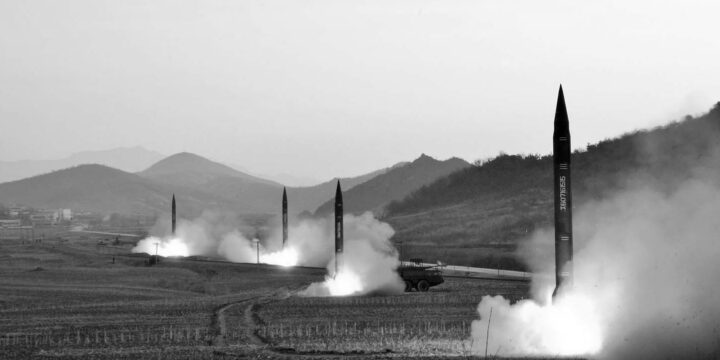Kim Jong Un’s Workers’ Party of Korea is celebrating today the 75th anniversary of the founding of what is formally known as the Democratic People’s Republic of Korea, which we know as North Korea. September 9th is the Day of the Foundation of the Republic, one of the country’s most important national holidays. Doubtless there will be many celebrations in and beyond the capital of Pyongyang. Previous jubilee celebrations included military parades on Kim Il Sung Square and artistic performances throughout the country.
But for many outsiders, a question will naturally arise: What, exactly, is there to celebrate? The country seems bent on self-destruction, pursuing irrational internal and external policies. The nation’s currency reform in 2009 attempted to curb growing private markets by introducing a new North Korean won and limiting the exchange amount. The result was to wipe out citizens’ savings, breeding massive resentment. There’s also tight informational control — in this globalized age, citizens caught in possession of South Korean cultural products (such as the wildly popular K-drama TV shows) face severe punishment.
In terms of its foreign and defense policies, there is North Korea’s seemingly irrational pursuit of nuclear weapons and the ballistic missiles to deliver them as far away as the United States — policies that run counter to well-established global norms and that have resulted in significant international sanctions being imposed on the country.
Given the dire economic straits the country finds itself in, this would seem to be the height of irrationality. Wouldn’t it be far more rational to devote many of the resources that currently flow to the military, and the nuclear and missile programs in particular, to feeding the North Korean people and otherwise elevating their standard of living? Put slightly differently, wouldn’t it ultimately be far more rational to take the road China took in the 1990s and simply join the international community, accepting its political, economic and security norms? After all, it worked for communist China, transforming it from an economic wreck into one of the most affluent nations on the planet. And look how prosperous South Korea has grown since adopting such an approach in the 1980s.
And all that is true, as far as it goes.
Author

Andrew
Latham
Non-Resident Fellow
More on Asia

December 17, 2024

Featuring Lyle Goldstein
December 15, 2024
Featuring Jennifer Kavanagh
December 11, 2024

December 5, 2024

Featuring Jennifer Kavanagh
December 5, 2024



